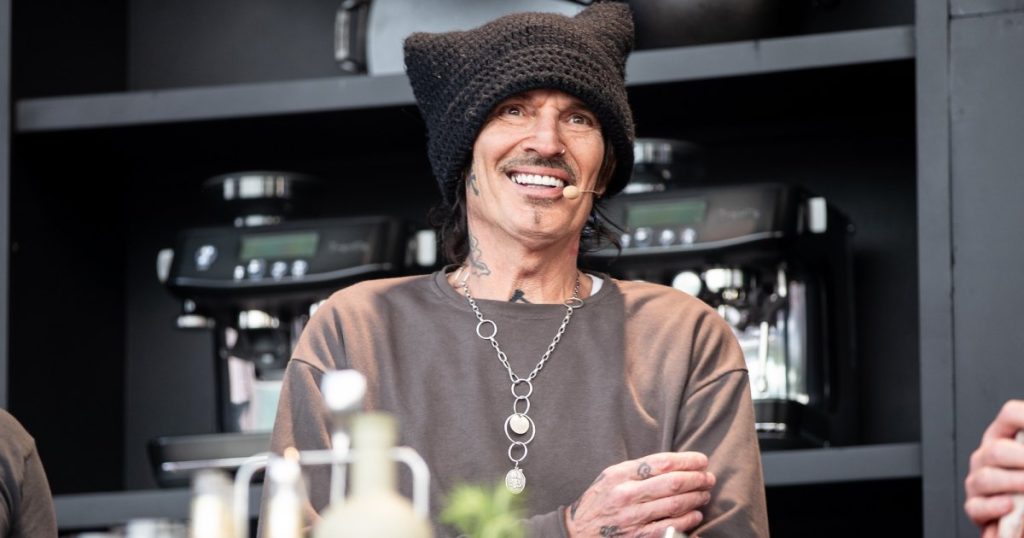Tommy Lee’s outburst on social media, criticizing fellow musicians for promoting their work amidst the devastating Los Angeles wildfires, sparked a broader conversation about celebrity activism and the appropriate response to tragedy. Lee’s central argument was that in the face of such widespread suffering and displacement, self-promotion felt tone-deaf and insensitive. He urged his peers to prioritize helping those in need over publicizing their latest projects. This sentiment, while perhaps bluntly expressed, resonated with many who felt that the gravity of the situation demanded a more empathetic and less self-serving response. The wildfires, which began on January 7th, had already ravaged thousands of homes, displacing countless residents and tragically claiming lives. In this context, Lee’s call for a shift in focus from self-promotion to community support seemed both timely and warranted.
Lee’s critique, however, wasn’t universally embraced. Some argued that artists have a right to continue their work, even during times of crisis. They pointed out that the entertainment industry provides a vital source of income for many, and that halting all promotional activities could have significant financial repercussions. Furthermore, some contended that music and other forms of entertainment can offer solace and distraction during difficult times, providing a much-needed escape from the harsh realities of the disaster. Others suggested that sharing information about upcoming projects, even amidst a crisis, could be a way to maintain a sense of normalcy and hope for the future. This perspective viewed Lee’s comments as overly harsh and dismissive of the various ways individuals cope with and process tragedy.
Adding another layer to the discourse was Kelly Osbourne’s criticism of celebrities who, in her view, were exploiting the wildfires for personal gain. Osbourne, without naming specific individuals, condemned what she perceived as a trend of celebrities using the crisis as a “photo op” to bolster their public image. She questioned the sincerity of those who publicized their charitable efforts, suggesting that true altruism should be performed discreetly, without the need for public recognition. This critique raised important questions about the motivations behind celebrity philanthropy and the potential for performative activism, where the focus seems to be more on showcasing good deeds than on genuinely helping those in need. Osbourne’s comments sparked debate about the ethics of publicizing charitable acts and the fine line between raising awareness and seeking personal recognition.
The contrasting viewpoints of Lee and Osbourne, while targeting different aspects of celebrity behavior during the wildfires, shared a common thread: a concern for the potential for insensitivity and self-promotion amidst a tragedy. Lee focused on the perceived inappropriateness of promoting artistic endeavors while communities were grappling with devastating losses, while Osbourne criticized the potential for exploiting the crisis for personal gain under the guise of charitable work. Both critiques highlighted the complex interplay between public image, social responsibility, and the ethical considerations that arise when responding to natural disasters. The debate sparked by their comments underscored the challenges of navigating the digital landscape during times of crisis and the potential pitfalls of performative activism.
The wildfires, which continued to rage across Los Angeles, prompting widespread evacuations and causing extensive damage, served as a stark backdrop to this unfolding debate. The sheer scale of the devastation – thousands of homes destroyed, lives lost, and communities displaced – underscored the urgency of the situation and the need for a collective, compassionate response. While celebrities like Beyoncé, Paris Hilton, Jamie Lee Curtis, and Eva Longoria donated to relief efforts, and many others volunteered their time and resources, the criticisms leveled by Lee and Osbourne raised questions about the nature and effectiveness of celebrity involvement in disaster relief. The discussion highlighted the potential for well-intentioned actions to be perceived as self-serving and the challenges of balancing public image with genuine concern for those affected by the crisis.
The debate ignited by Tommy Lee and Kelly Osbourne’s comments ultimately reflected a larger societal conversation about the role of celebrities in times of crisis, the ethics of publicizing charitable acts, and the delicate balance between personal expression and social responsibility. The wildfires, with their devastating impact on communities across Los Angeles, served as a poignant reminder of the importance of empathy, compassion, and genuine support in the face of tragedy. The ongoing discussion highlighted the complexities of navigating the digital landscape during times of crisis and the need for mindful engagement that prioritizes the needs of those affected over personal gain or self-promotion. The incident served as a case study in the evolving relationship between celebrities, social media, and public perception, particularly during moments of collective vulnerability and shared grief.

